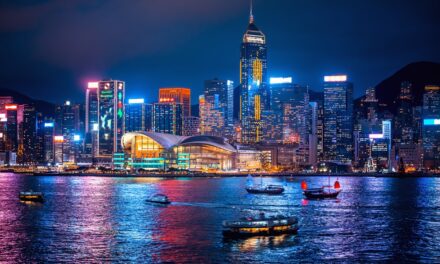
DHL head in Asia says ASEAN needs more unity on free trade issues
The head of DHL express delivery in Asia is applauding efforts by Thailand and Singapore to speed up economic reforms in Southeast Asia, but he warns that if the region doesn’t work better as a group, less developed nations will lag farther behind.
John Mullen _ chief executive officer for DHL Express America, Asia Pacific and emerging markets _ said in an interview Saturday with The Associated Press that Southeast Asia has to make it easier for foreign companies to invest in the region.
Faster customs procedures are also needed, Mullen said at the Association of Southeast Asian Nations summit in the Laotian capital, Vientiane. DHL was a corporate sponsor of the event.
“Singapore and Thailand have been really aggressive in leading the charge” for freer markets, he said. “But the disadvantage of that is that if you end up with a two-speed ASEAN, that tends to marginalize the slower-paced countries even further.”
DHL, owned by Deutsche Post World Net, said its Asia-Pacific revenue totaled US$3.31 billion (euro 2.5 billion) in 2003. The company said it employs more than 20,000 people in the region, and has two hubs in Southeast Asia: Singapore and Bangkok.
Mullen said that one of Southeast Asia’s biggest challenges will be keeping up with China. “I think ASEAN is struggling to move at the same speed as the China juggernaut,” he said.
The DHL executive praised ASEAN’s plans to create a free trade area with China by 2010. ASEAN leaders were expected to signs parts of the agreement after they begin meeting Monday.
Mullen predicted that China, where DHL’s business grew 50 percent last year, will surpass Japan as DHL’s biggest customer “in another year or so.”
DHL has said it’s investing US$215 million (€162.41 million) in express and logistical infrastructure in China over the next five years.
“It’s unclear exactly how fast the market is growing there” in China, he said. “It’s hard to get reliable data.”
He doubted that China’s efforts to cool down its red-hot economy would affect DHL because Beijing was focusing more on heavy infrastructure, which isn’t a big part of the company’s business.
But he predicted that demand for DHL’s services would pick up further in China after worldwide quotas for textiles are removed next year under World Trade Organization rules. The end of the quotos, effective since the 1960s, will allow producers to export as much as they can sell.
“China will increase its share of the textiles quite sharply,” Mullen said.












